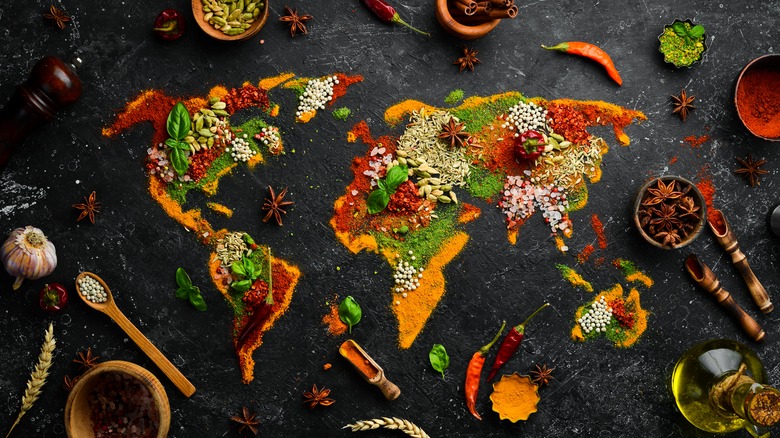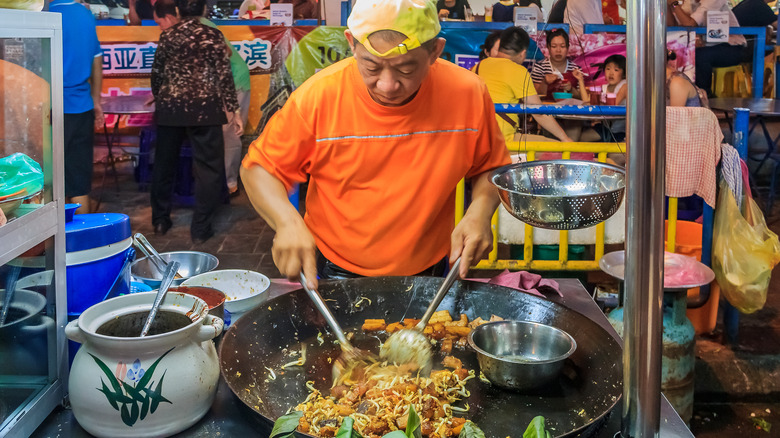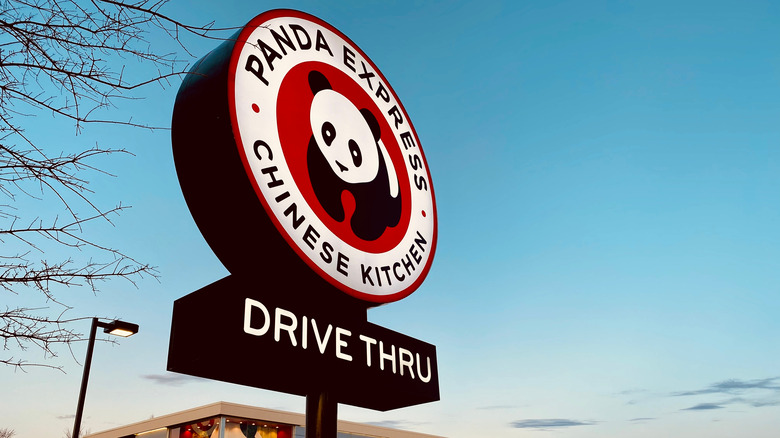What Does 'Authentic' Food Actually Mean?
In the streets of Paris, there is a fast food chain of taco shops called O'Tacos, with the slogan "Original French Tacos" proudly emblazoned underneath their logo. To the uninitiated, these French tacos are nothing like tacos at all. They are a curious fast food unique to France, and only "contains two of three elements commonly held to make an authentic taco (nixtamalized corn tortilla, filling, sauce)," according to one investigation from The New Yorker.
Many would agree that the massive meat- and cheese-filled tortilla pucks are not even a real taco, much less an authentic taco. However, using the word "authentic" to describe a taco — or any type of cuisine for that matter — is no longer the trendy buzzword it was in 2009, used to describe "hole-in-the-wall taco joints over Qdoba," per Eater.
What, then, does it exactly mean when one uses the word "authentic" to describe food?
Defining authenticity in food
Chef, author, and activist Jenny Dorsey recently took to Instagram to break down what makes something taste authentic, splitting it into three different categories.
In the first category, authenticity refers to a specific point of view towards a culture's traditional dish or cuisine at a certain point in time, such as childhood memories of eating Mexican, Italian, Chinese, or other cultural or ethnic food, perhaps cooked by a grandma or other loved one.
In the second category, authentic-tasting food can refer to whether or not there is an adherence to regional flavor principles or flavor profiles that "tend to situate us in a specific region of cuisines."
Finally, according to Dorsey, authenticity has become a weapon used by Yelp reviewers because a restaurant isn't "performing authenticity" in a way the consumer is accustomed to. As a result, a lot of restaurants that claim to be a certain type of food — like Qdoba, Outback Steakhouse, P.F. Chang's, or Olive Garden — are then decried as "not actually authentic."
The arguments against authenticity
Despite the initial craze of critics and Yelp reviewers alike claiming that a Chinese restaurant or Hungarian pastry shop was authentic, as early as 2011 food writers were starting to question what authenticity really means.
Elahe Izadi reported for DCentric on the number of restaurants run by people who do not originate from the same region of the world as the cuisine they are cooking. One such restaurant that he wrote about was Bardia's New Orleans Cafe, which is run by an Iranian immigrant who previously spent more than ten years working in Louisiana-style restaurants, making the argument that perhaps authenticity doesn't even matter.
A year later, writer Sejal Sukhadwala then wrote about the "bogus quest for authenticity" in food for The Guardian, questioning the way chefs and cookbooks were proclaiming authenticity as a badge of honor that one had to be born with. Sukhadwala broke down the word via its Greek roots: "autos" means "self" and "hentes" means "doer and being." Her definition then is that "authentic food could be dishes which are true to themselves and the person cooking them."
A 2014 ban on foreign cooks to preserve authenticity
A reverence for authenticity went so far in Penang, Malaysia that in 2014, the local government passed a ban that prevented foreign cooks from working at their street vendors (via Strait Times). In addition to the ban, authorities were giving out stickers that hawkers could display to show that their food was "authentically local."
Two years later in 2016, writer Surekha Ragavan decried the extreme governmental act in Time Out, calling it racism disguised as nationalism and a way to protect local cuisine. This concept of authenticity in food held to an extreme, Ragavan writes, embodies "the very dangerous idea of a cuisine belonging to one culture, one race, or one shade of skin; or the outdated notion that food is a product of nature, but never of nurture."
Yet this logic was applied in Verona, Italy when in 2016 the mayor Flavio Tosi tried to ban so-called "ethnic" restaurants (via Smithsonian Magazine) to combat the upswing in popularity of fried food and kebabs. His reason? To "preserve the city's culture and traditions."
Panda Express as authentic American Chinese food
Authenticity today is an acknowledgment that our experiences, our points of view, and positions in points in time are constantly moving and flowing, so much so that Panda Express, a fast food chain oft-dismissed as inauthentic or even fake, was called the "most authentic American Chinese chain in the world" (via Insider). This coincided with the addition of General Tso's Chicken to their menu, which the CMO described as representative of "a story of immigrant Chinese chefs and families coming to the U.S., for what they hope will be a better life. It's a story of taking the recipes and the repertoire of their own culinary skill set and making it appeal to an [American] national palate."
Though some may still weaponize using the word "authentic" to describe food, the tide is changing in terms of what authenticity means. It's becoming less rigid, more flexible, and more open to interpretation, understanding, and grace.




